21. THE TROUBLED 21st CENTURY

IDEOLOGY REPLACES STRATEGY IN AMERICAN LEADERSHIP
CONTENTS
 Boomers in the White House Boomers in the White House
 The Gen-Xer Obama ... and his desire to The Gen-Xer Obama ... and his desire to
"Change" America
 The shock of another Boomer president The shock of another Boomer president
 Biden does ideology perfectly Biden does ideology perfectly
BOOMERS IN THE WHITE HOUSE |
America's
generational differences are clearly demonstrated in the varying
character of its late 20th and early 21st century presidents. Interestingly, three of
America's recent presidents were all born in 1946 … just months apart:
Trump in June, Bush Jr. in July, and Clinton in August. In quite
unique ways, they were very "Boomer" in the way they went about their
respective presidencies.
Clinton
actually seemed to vary from being something of a late-Silent to being
more typically an early-Boomer ... depending on what the political
realities happened to be at the time.
George W. Bush (Bush, Jr.)
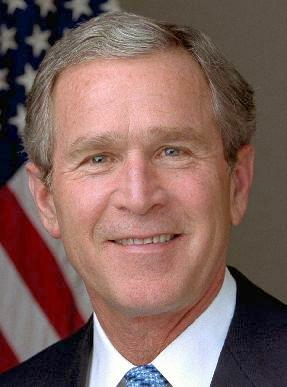 Bush
Jr. came to the White House in full Boomer bloom. But he
would stay that way ... even in the face of disasters his Idealism
brought on him and America. During his
campaign for the presidency, he announced himself to be a
"compassionate conservative" (as if other conservatives had no
compassion) … and once in the White House, immediately undertook the
effort to bring American education under new federal standards.
This was shockingly a very non-conservative view of the role of the
national government in what traditionally in America had been a matter
solely of American families … and the local school boards they
supported and directed in how they wanted their children educated
outside of their homes. Bush
Jr. came to the White House in full Boomer bloom. But he
would stay that way ... even in the face of disasters his Idealism
brought on him and America. During his
campaign for the presidency, he announced himself to be a
"compassionate conservative" (as if other conservatives had no
compassion) … and once in the White House, immediately undertook the
effort to bring American education under new federal standards.
This was shockingly a very non-conservative view of the role of the
national government in what traditionally in America had been a matter
solely of American families … and the local school boards they
supported and directed in how they wanted their children educated
outside of their homes.
9/11. But this Bush
venture into Boomer Idealism would be rather immediately upstaged by
the events of 9/11 (al-Qaeda's terrorist attacks on the New York Twin
Towers and DC's Pentagon building). The world was shocked … and
very supportive of American efforts to bring the perpetrators of this
evil deed to justice. But finding and bringing down the al-Qaeda
organization behind those attacks would not be easy … because of the
amorphous character of the "organization" (more an idea or philosophy
than a social organization) and because neither the Pakistani
government nor the Afghan Taliban (Islamic fighters who had recently
taken control of Afghanistan) were willing to seize and extradite the
al-Qaeda members operating in their respective countries.
So what did Bush decide to do? Pakistan was a nuclear power and
very unwilling to cooperate in this venture into international
justice. Clearly, there was nothing to be done there … despite
the fact the al-Qaeda's operational headquarters were clearly located
in that country. What about Afghanistan? Al-Qaeda had a
number of jihadist training bases in the country … although these moved
easily from place to place and could easily slip into the Hindu Kush
mountains where locating them would be virtually impossible.
Afghanistan. So
ultimately what did Bush decide to do? Invade Afghanistan … and
make the country over into a more "democratic" society. Would
that bring al-Qaeda to justice? Of course not. But it would
give the Boomer Idealist Bush the appearance of at least doing
something "honorable" in response to the huge national hit America had
just experienced.
But of course making over a society that had been Muslim for well over
a thousand years into something reflective of what Bush understood as
"democratic" – the Boomer American Idealist version of "democratic"
society anyway - was a task destined to grand failure. Did he not
understand this? No of course not. No Boomer does.
Boomers live in a world of grand Ideals that make them qualify as
"Progressivists" … "progressivism" being almost anything that takes
society down a new – and thus of course always better – road than it
has been on.
Do Boomers have any idea of how such a quest is likely to end up?
How could they, since they respect no social models offered by history
to instruct them in the choices they would have to make. After
all, to a Boomer, history is simply a record of failures that Boomers
are positive that they themselves will never repeat in their
"progressivist" move into the future.
And so off Bush – and his Secretary of Defense Rumsfeld's new
"professional" army – went in order to make over Afghanistan.
Did Bush learn nothing from the catastrophic Soviet venture into the
same country so recently undertaken … during the time his father was
Reagan's Vice President? Of course not. Boomers do not learn
lessons even from recent history. They dream dreams and chase
after them … because they are so much more impressive than reality.
Saddam Hussein's Iraq.
Then even more amazing was Bush's decision that while America's armed
forces are over in the Middle East, they might as well also take down
the Iraqi dictator Saddam Hussein … a task that Bush's father had
failed to complete when he merely had American troops drive Saddam's
forces out of neighboring Kuwait.
And why exactly was Bush Jr. deciding to undertake this task?
Even his Vice President Dick Cheney had once stated that going into
Iraq would be to fall into a quagmire … wasting expensive political
assets with no possible reward. But why was Cheney now supporting
Bush's "democratic dream"? That's just how politics in high
places works. You support the Big Man … no matter how foolish
such support clearly happens to be.
And so off America went, bombing and killing Iraqis (and ultimately
Saddam Hussein himself) … in the name of "democracy for Iraq."
Did the Iraqis want this? They never said so. This was
strictly a Bush, Jr. idea.
And thus into the "quagmire" America went … spending lives, military
machinery, and lots of dollars to bring "democratic happiness" to
Iraq. And of course, the Iraqis shot back. But Bush simply
poured more American assets into the venture … before announcing an
Iraqi pullout as he came to an end of his eight-years in office.
Ultimately, during those many years in Iraq, he had simply switched the
power base from one set of deeply dedicated Muslims (the Shi'ites) to
another set of deeply dedicated Muslims (the Sunnis) … and left the
Sunnis now as equally deeply dedicated enemies of America. The
whole of Northeast Iraq (spilling into Eastern Syria) became the seat
of a very dedicated group of fiercely anti-American/anti-Western
terrorists … that the Middle East, Europe and America would have to
deal with. What a political legacy!
And the victorious Shi'ites he left in power in Iraq were vastly closer
in their loyalties to the "death-to-the-Great-Satan-America" Iranians
next door than they were to their American deliverers!
And all of this was achieved at the cost to Americans of over a trillion dollars. Thank you, Boomer Bush.
The American economic meltdown.
But the Boomer Bush economic catastrophe did not end there. When the
American economy finally showed a slump in his early years in office,
Bush decided to "free up" the American economy from a number of legal
restraints placed on it dating back to the 1930s during Roosevelt's
Depression Era New Deal. And now enjoying the lack of economic
boundaries (that actually had worked quite well to keep the economy
under some kind of operating order) the American economy took off again
… right into one of the worst economic meltdowns to hit the country
since the Depression.
And Bush was forced to throw massive amounts of federal money after
corporations facing bankruptcy from all the financial foolishness they
had been recently caught up in … driving up the national debt to
astronomical heights – in fact doubling the national debt from five to
ten trillion dollars during Bush's eight years in office.
Needless to say, all this left Americans feeling very grumpy … and the
Republican Party (that Bush was supposed to have been leading) as an
understandable target for disillusioned Americans going into a national
election in 2008 – as Bush left office … and a shattered economy behind
him. Wow. What a Boomer legacy. <
THE GEN-XER OBAMA
AND HIS DESIRE TO "CHANGE" AMERICA |
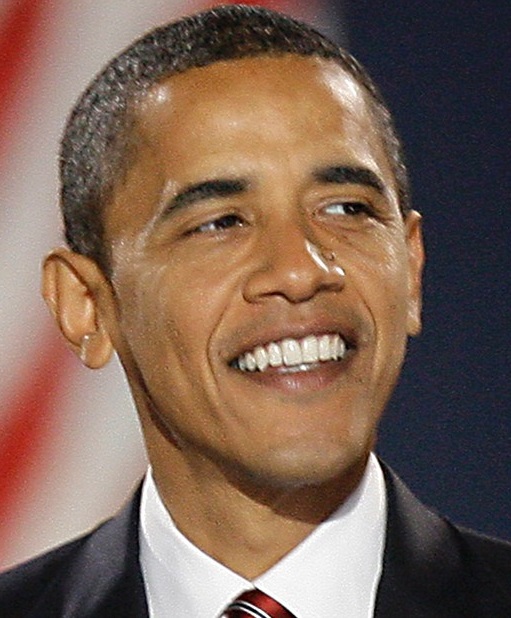 Not
surprisingly, the 2008 elections brought a massive shift in favor of
the Democratic Party (and all of its Boomer "Progressivism") ... and
its Gen-Xer presidential candidate Barack Obama. Not
surprisingly, the 2008 elections brought a massive shift in favor of
the Democratic Party (and all of its Boomer "Progressivism") ... and
its Gen-Xer presidential candidate Barack Obama.
In so many ways Obama exemplified the American generation that was to
follow the Idealistic, self-promoting Boomer generation. He came
from a divorced family, with a missing father and a well-educated and
highly "professionalized" mother, and raised here and there by
various other sources … including simply the world of "others"
immediately around him, the schools that gave him the social guidance
that the family did not offer (though he was close to his grandparents
… also typical of Gen-Xers) … and the entertainment and news
(increasingly just social commentary) media as the ultimate informant
for what he was to expect of himself – and the larger world.
Like so many Gen-Xers, he did not have some kind of highly Idealistic
dream to guide him … but rather a cynical view that "whatever" would
work fine enough for him. There really was no alternative.
Being personally bi-racial, after going through law school (and finding
corporate law uninteresting) he got involved in "community development"
… giving him some sense of larger purpose.
But the Gen-X world was frustrating because it ultimately seemed to
offer so little in reward for one's effort (whatever that effort might
be). Little wonder then that as a Gen-X presidential candidate,
Obama's theme (offered repeatedly) was "Change" … change in in how
things worked, whatever they might be – with the hope that what
replaced old social patterns would make more sense and work better for
everyone ... because the "old" or "traditional" was not working
very well.
But unlike the well-focused and highly energized Idealistic drive of
the Boomers, the Gen-X hunger for change tended to be rather random or
"whateverish" in form. In his campaign, Obama did not spell out
exactly what his program of "Change" was to entail. Certainly he
was hoping for "better" in such social areas as poverty, health care,
education, etc. … all the areas needing change in order to produce a
more successful life.
Little wonder that he chose two unmarried and childless women to fill
emptied Supreme Court slots (thus part of the slim judicial majority
throwing DOMA out as "unconstitutional") … with the clear expectation
that they would certainly stand in favor of social "progress" …
meaning, leaving he past behind and thus opening up opportunities for
the future to take its new shape.
Obama had little use for male authority … especially White male
authority … and was quick to fill the ranks of his Cabinet (as well as
the Supreme Court) with those who qualified as being not of the White
male variety. He did select as 2008 his running mate a White
male, Joe Biden. But Biden was there only to "balance" the
picture … not to have any serious influence in matters.
Obama was a strong supporter of the "Black Lives Matter" Movement …
formed up as a result of a (false) portrayal of events occurring
between a White policeman and a Black pothead in a small town in
Missouri. America was torched by another round of Black anger …
and Obama did what he could to spin the story in favor of the Black
youth (not the first time he did this sort of thing either).
And when Black sports figures decided to not stand in honor of the
country in the playing of the national anthem, in typical Gen-x mode,
Obama as president of the country stood with those refusing to honor
the flag … and whatever it might represent. After all, it was
exactly all of that (vaguely) that he wanted changed.
And he was in office for eight years – enough time to double the
national debt again (10 trillion to 20 trillion dollars) … and leave
both militant females and disenchanted youth with an even stronger
conviction that America needed to shake off its political traditions –
shaped almost completely by White males – and move into a world that
extolled those of not one or the other (or better, both)
qualities. Indeed … Black females (or at least non-Anglo females)
would soon come into strong political-social-cultural influence …
thanks in great part to the Obama legacy – carried forward as a virtual crusade by a "progressive" press corps.
But the media also went down this same road with Obama … and so played
a huge part as well in shaping deep "change" in the American social
structure … all of it being done by those who congratulated themselves
as being true "Progressives."
The
American press corps and entertainment media (Fox News being about the
only exception) took up the Obama legacy as a virtual crusade that had
to be carried forward ... against any and all opposition.
And the Democratic Party saw its duty to ally with just that same
"Progressivist" urge. Those who still supported conservative
values needed to be completely brought down. There could be no
political compromise on the matter ... for "compromise" represented
less than full embrace of the crusade. |
THE SHOCK OF ANOTHER BOOMER PRESIDENT |
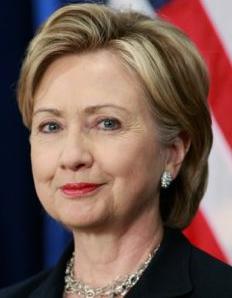 The
Democrats put forward as their presidential candidate Hillary Clinton …
clearly moving down the Progressivist or post-traditionalist road in
doing so – and expecting a dazzling electoral victory in the 2016
presidential elections in doing so. But weren't they
shocked when the person who represented most vividly the traits that
Progressivist America deplored won the election. How did this
happen? The
Democrats put forward as their presidential candidate Hillary Clinton …
clearly moving down the Progressivist or post-traditionalist road in
doing so – and expecting a dazzling electoral victory in the 2016
presidential elections in doing so. But weren't they
shocked when the person who represented most vividly the traits that
Progressivist America deplored won the election. How did this
happen?
Apparently there was a rather large "basket of deplorables" out there,
conservative voters as Hillary herself termed them, unable to see the
progressivist moral picture clearly. And thus they voted for the
highly ego-centric and theatrical (thus true Boomer) Donald
Trump.
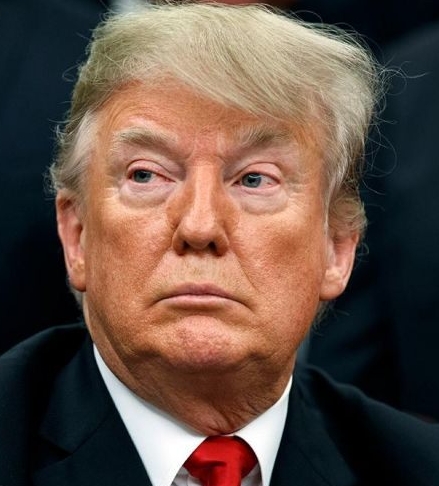 The
reaction of the progressivist world was immediate. Not only in
America but across the world, masses of people (mostly women and youth)
turned out in huge numbers to declare that Trump was "not my
president." Immediately, action was taken up by Congressional
Democrats to find grounds to impeach Trump as quickly as possible (a
Congressional process now being used regularly as a clever political
tool to remove political opponents from the presidential office).
And they found documents (paid for by the Hillary election campaign)
that supposedly connected Trump with some kind of Russian conspiracy to
have him rather than Hillary elected as US President. And surely
these offered the legal means to impeach Trump. The
reaction of the progressivist world was immediate. Not only in
America but across the world, masses of people (mostly women and youth)
turned out in huge numbers to declare that Trump was "not my
president." Immediately, action was taken up by Congressional
Democrats to find grounds to impeach Trump as quickly as possible (a
Congressional process now being used regularly as a clever political
tool to remove political opponents from the presidential office).
And they found documents (paid for by the Hillary election campaign)
that supposedly connected Trump with some kind of Russian conspiracy to
have him rather than Hillary elected as US President. And surely
these offered the legal means to impeach Trump.
However a search committee they were forced to assemble did not come up
with the results they wanted ... so they tried again, basing their
second impeachment effort on the way Trump held off American payments
to Ukraine until Ukrainian corruption could be cleaned up a bit ...
implicating Democratic leader Joe Biden's son in the corruption
matter. But the Democrats backed down when they realized that
bringing Joe's son Hunter into the discussion would hurt rather than
help their impeachment effort. So they simply decided to impeach
Trump because he refused to honor their subpoenas demanding his
appearance in front of the Democratic-Party-controlled Congressional
committee pursuing its impeachment possibilities.
Tragically, all this pointed out how deeply America was divided.
There seemed to be no middle ground between Republican Party
"conservatives" and Democratic Party "progressives." America was
splitting into two hostile communities.
And the media was no help in the matter, slanting the "news" (again,
mostly just deeply ideologized social commentary) in favor of the
"Trumpian" Republicans (mostly Fox News) on one side and Trump's
enemies (mostly all the other media) on the other.
And Trump, being a classic Boomer, was no help in the matter. He
had no professional experience in public office ... and seemed totally
unaware of the niceties required to make a contentious political
engagement not become poisonous. Indeed, besides being a very
wealthy, very successful, self-absorbed urban construction chief, he
was a host for years of a widely-watched TV program … one that
delighted in bring in contestants and then cutting them down in some
kind of competition for larger service in the community. Trump
used that same TV flare for cutting out contestants to similarly
undercut vocally his fellow Republican contestants in the 2016 race for
the Republican Party presidential candidacy (issuing one ridiculous insult after another and interrupting their time to deliver their cases before the TV audience) ... thereby finally eliminating all but himself for the position. Very clever.
And then sadly, when in office, he continued the same theatrics against
anyone he decided that needed to be taken down personally a peg or
two.
Trump simply had no idea of how to build support among any except those
willing to follow him slavishly. He had his wild supporters of
course. But he seemed unable or just unwilling to bring the
all-important political "center" to his support. That would
require compromise. And he was just not interested in such
political niceties. Theatrics seemed to be the only strategy (if
you can call it a strategy) that he was willing to employ to get things
done.
He used those theatrics a bit in his effort to develop a Trump "foreign
policy" ... although what that exactly amounted to was never very
clear. He seemed to repulse most of his European allies.
And neither Russia's Putin nor China's Xi seemed to have much regard
for him.
And finally his theatrics failed him … when he was shocked to find that
he had not been reelected in the 2020 presidential election – claiming
(without offering any material proof) that the whole process had been a
fraud. He was so loud in his protesting that he ultimately
repulsed Georgian voters in a follow-up senatorial election enough to
undercut the lead of the Republican candidate – ultimately
bringing the Democratic candidate to victory … and thereby also cutting
the Republican lead in the Senate down to a mere tie with the Democrats.
Indeed, his persistent theatrics got him in deep trouble when they
inspired a massive group of Trumpian hotheads to invade the US Capitol
building – just as Congress gathered to confirm the official results of
the election ... violence and death occurring in this most sacred of
political sites. At that point a number of Congressional
Republicans seemed quite willing to join the Democrats in indicting
Trump for criminal behavior … something with very serious consequences
not only for Trump but also for the nation.
BIDEN DOES IDEOLOGY PERFECTLY |
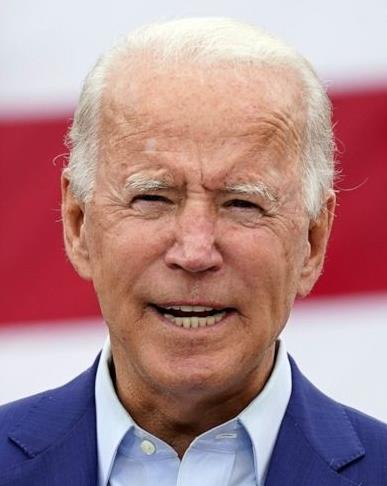 The
winner of the 2020 presidential election was pre-Boomer, that is,
something of a "Silent" ... one of those individuals born just before
or during World War Two – and deeply committed to some higher cause shaped by forces larger than simply one's own imagination. The
winner of the 2020 presidential election was pre-Boomer, that is,
something of a "Silent" ... one of those individuals born just before
or during World War Two – and deeply committed to some higher cause shaped by forces larger than simply one's own imagination.
Biden was/is a "loyalist" not untypical of most Silents ... a loyalist
especially to the Democratic Party of which he has been a longtime
member. He was elected to the US Senate when he was only 30,
served numerous terms, becoming even the lead Democrat of the Senate
Foreign Relations Committee and as a Democrat running for the office of
President a couple of times before becoming Obama's running mate and
thus Vice President. Now finally – after four years out of the
electoral-office business (2016-2020) and in his upper 70s in age – he becomes America's President.
Given the fact that America itself has seemed to have lost sight of
exactly what it is that all Americans should stand for (and not just
against), it is not surprising that Biden's "loyalism" finds its
natural place in a much narrower context than that of the American
national interest. Indeed, is there even anyone with a
sense of what that higher national interest truly should be ...
something that all Americans could rally around? At the point of
Biden's taking office, political interests seem to register themselves
only along the lines of the narrower ideologies dividing the country.
Briefly – very briefly –
a flicker of hope arose when Biden pledged in his inauguration speech
than he planned to be the president of all Americans, not just those
who voted for him. But sadly, that same afternoon he entered his
new presidential offices and issued 17 executive orders … each one of
them in support of the ideological agenda of his Democratic
Party. No conferences were held across party lines to bring a
larger American grouping on board; no discussion, no explanation was
offered. Biden simply jumped to the task of putting into full
operation his party's political agenda … because as president, he
supposedly had the power to do so.
Biden is a Democratic Party loyalist through and through. He has
long served that particular political party. And now in the White
House, it is the Democratic Party's political agenda that he intends to
focus his thoughts and efforts on. That, and that alone, is as
far as his loyalties will reach. He will be all about ideology …
and the necessity of putting it into full operation.
Unfortunately, ideology is not strategy. Ideology is about
emotional attachments, not about well-thought-through programs.
It was ideology, not strategy the Biden was offering his his
announcement that America would offer open borders to refugees seeking
asylum in America (virtually everyone wanting a better life than they
lived in their own parts of the world); or in his ending of national
petroleum self-sufficiency because it contributed (a small portion
actually) to the larger, and certainly very problematic, climate change
impacting the world; and in his strongly held notion that the
Washington bureaucracy should take care of a younger generation not
able to be brought to a better world simply through the efforts of
family and local authorities ... all of this, of course, undertaken at
the taxpayers' – or rather future taxpayers' – expense.
Unsurprisingly, all this in very short order ran the federal debt up to
astronomic heights … quickly hitting the 30 trillion dollar mark.
And
all of this took place as massive inflation rocked the nation …
making material needs (such as gasoline for the car and food for the
table) extremely expensive for the average American.
But Biden remained convinced that more than ever, the country needed to
bow to DC's leadership … in every matter. And symbolically, the
wearing of masks, decreed by DC as an absolute necessity in fighting
the Covid epidemic, should be obeyed across the country.
|

Go on to the next section: 9/11 and Iraq
 Miles
H. Hodges Miles
H. Hodges
| | |


 Boomers in the White House
Boomers in the White House
 The Gen-Xer Obama ... and his desire to
The Gen-Xer Obama ... and his desire to The shock of another Boomer president
The shock of another Boomer president
 Bush
Jr. came to the White House in full Boomer bloom. But he
would stay that way ... even in the face of disasters his Idealism
brought on him and America. During his
campaign for the presidency, he announced himself to be a
"compassionate conservative" (as if other conservatives had no
compassion) … and once in the White House, immediately undertook the
effort to bring American education under new federal standards.
This was shockingly a very non-conservative view of the role of the
national government in what traditionally in America had been a matter
solely of American families … and the local school boards they
supported and directed in how they wanted their children educated
outside of their homes.
Bush
Jr. came to the White House in full Boomer bloom. But he
would stay that way ... even in the face of disasters his Idealism
brought on him and America. During his
campaign for the presidency, he announced himself to be a
"compassionate conservative" (as if other conservatives had no
compassion) … and once in the White House, immediately undertook the
effort to bring American education under new federal standards.
This was shockingly a very non-conservative view of the role of the
national government in what traditionally in America had been a matter
solely of American families … and the local school boards they
supported and directed in how they wanted their children educated
outside of their homes.
 Not
surprisingly, the 2008 elections brought a massive shift in favor of
the Democratic Party (and all of its Boomer "Progressivism") ... and
its Gen-Xer presidential candidate Barack Obama.
Not
surprisingly, the 2008 elections brought a massive shift in favor of
the Democratic Party (and all of its Boomer "Progressivism") ... and
its Gen-Xer presidential candidate Barack Obama.  The
Democrats put forward as their presidential candidate Hillary Clinton …
clearly moving down the Progressivist or post-traditionalist road in
doing so – and expecting a dazzling electoral victory in the 2016
presidential elections in doing so. But weren't they
shocked when the person who represented most vividly the traits that
Progressivist America deplored won the election. How did this
happen?
The
Democrats put forward as their presidential candidate Hillary Clinton …
clearly moving down the Progressivist or post-traditionalist road in
doing so – and expecting a dazzling electoral victory in the 2016
presidential elections in doing so. But weren't they
shocked when the person who represented most vividly the traits that
Progressivist America deplored won the election. How did this
happen?
 The
winner of the 2020 presidential election was pre-Boomer, that is,
something of a "Silent" ... one of those individuals born just before
or during World War Two
The
winner of the 2020 presidential election was pre-Boomer, that is,
something of a "Silent" ... one of those individuals born just before
or during World War Two 
